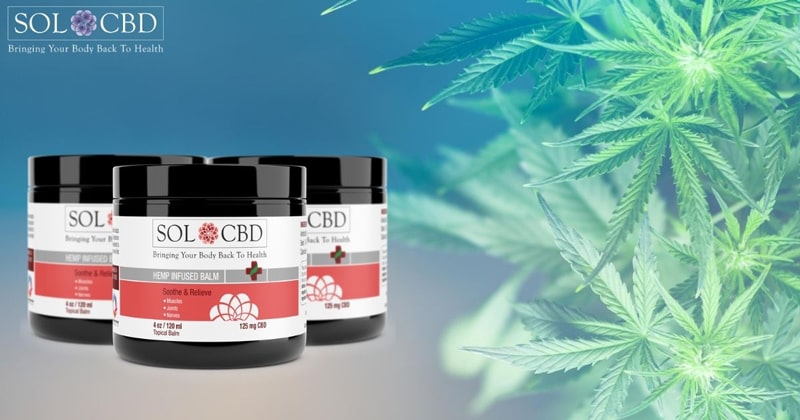The cannabidiol (CBD) industry is exploding left, right and center. The mainstream media is discussing it; your family members are opening up to it, CBD is everywhere and on the tip of everyone’s tongue.
Despite its prevalence in everyday life, the language used to describe CBD has certainly not clarified over recent years. Hemp oil, CBD oil, hemp-CBD oil - it's a complicated and complex issue, more so because not everyone uses the same definitions.
Part of the problem is that cannabis products remain largely unregulated in the United States. Whether we are talking about potent medical marijuana extracts or non-psychoactive hemp oils, the fledgling industry struggles with no overarching regulatory body.
To illustrate - one company can call its product a full-spectrum hemp oil, while another could label it as a CBD extraction, yet both could be describing the same exact product. It's up to the consumer to sift through the product label and other information to determine precisely what is going on. Despite confusing labeling, hemp oil and CBD oil are dramatically different products.
CBD vs. Hemp Oil: Defining the Terms

Before any comparisons get underway, it’s essential to break down the different definitions used in the industry when describing CBD oil vs. hemp oil. Definitions vary depending on the company, but for this article, we’ll rely on the following descriptions:
Cannabis
According to a recent journal article, The Name Cannabis: A Short Guide for Nonbotanists, the term cannabis should be used to describe the plant family as a whole. The authors state that “Depending on the taxonomic treatment adopted, the genus Cannabis (Hemp, Family Cannabaceae) includes up to three species, each with a very long history of domestication.” [1]
Therefore, although you may have preconceived ideas about the word cannabis, in our article, cannabis refers to the plant family as a whole. It does not indicate final intent or the cannabinoid content of the plant.
Marijuana
The term marijuana is typically less confusing for people because it's rarely used to describe anything except THC-heavy strains. This article will use the term marijuana to describe cannabis with strongly psychoactive properties, or a high THC content.
Hemp
Cannabis doesn’t always have to have psychoactive properties. In fact, people often use cannabis, or hemp, only for its fiber content. Although hemp is technically the same plant species as marijuana, under U.S. law it is only legal to cultivate hemp if it contains less than 0.3 percent THC. In other words, when grown for reasons beyond its psychoactive compounds, growing hemp is legal. Traditionally farmers grew hemp for its fibers and as a foodstuff, but now, of course, we grow it for its CBD content.
RELATED: What does CBD Stand For? Learn What CBD Is And Its Potential Benefits
With these terms clarified, we can get down to business and work through the main differences between hemp oil vs. CBD oil.
CBD vs. Hemp Oil: The Plant Material

The first crucial difference between CBD oil and hemp oil can be found in its parts, or, in other words, the plant material that is used to produce the final product. Cannabidiol oil is sourced from cannabis, but if you break that down a little further, it can come from either marijuana or CBD-heavy industrial hemp varieties.
In either case, producers use the entire plant - bud, stem, and leaves - to produce a CBD extract. The cannabis strain the CBD oil came from will also determine the final cannabinoid content of the extract. A hemp-sourced CBD oil will contain little to no THC, while marijuana-sourced CBD oil may have higher levels of psychoactive THC then legally acceptable.
Hemp oils, on the other hand, aren’t extracted from the leafy green plant materials at all. Instead, they are extracted (pressed) from the hemp seeds. Hemp oils contain many beneficial compounds, but only trace amounts of any cannabinoids - THC or CBD.
CBD vs. Hemp Oil: The Medicinal Compounds

Broadly speaking, the cannabis plant is packed full of cannabinoids and terpenes with many medicinal benefits. But in our comparison of hemp oil vs. CBD oil, is there a difference in medicinal compounds in the final product? Absolutely.
Cannabidiol products, no matter if they come from hemp or marijuana, contain potent compounds called cannabinoids. For the uninformed, cannabinoids (CBDs) interact with our endocannabinoid system in many different ways to affect our health.
RELATED: What Does CBD Do to Your Body?
Preliminary research demonstrates that CBD has the potential to benefit the treatment of epilepsy, cancer, inflammation, psychiatric disorders, and much, much more. Just as scientists uncover one possible new therapeutic avenue, it seems like a new one appears over the horizon.[2][3][4][5]
On the flip side of things, hemp oil doesn’t contain the necessary properties to make it medicinal. That isn’t to say that it isn’t a healthy source of several nutritional components, but it works more as a dietary supplement than a medicinal one.
As a dietary supplement, hemp oil contains high levels of edestin and albumin, two proteins known for its exceptionally high essential amino-acid content. The two essential fatty acids (EFAs) - Omega 6 and Omega 3 - come in ratios that are considered optimal for human health, also ready-packed with the biological metabolites necessary for consumption and proper digestion. [6]
Hemp Oil vs. CBD Oil: The Final Products
Just to make it extra confusing for consumers, some CBD oil producers use hemp oil as the carrier oil for their CBD products. However, under most circumstances, the difference between CBD vs. hemp oil products will be quite clear.
Hemp oil will almost always be found in grocery and specialty food stores, next to other healthy cooking oils. Cannabidiol may be a bit more difficult to find in local stores. However, depending on which state you live in, you may be able to source CBD oil products through a dispensary. You can also always find CBD products online and available to all 50 states.
Cannabidiol products come in almost every preparation and every size, including balms, salves, tinctures, extracts and more. Hemp oil typically just comes in a standard cooking-oil format or supplement, with little variation.
Hopefully, with this information in hand, you’ll be able to decipher the differences between the products, no matter the situation. Because there is a lack of systemic regulation on the contents and labeling of CBD products, it can still be quite difficult to find high-quality CBD oil.
Disreputable distributors seek to take advantage of the confusion this creates, selling hemp oils under CBD labeling. Use your new-found knowledge about CBD oil vs hemp oil to source high quality and high-CBD content extracts to reap the most medicinal benefits.
RELATED: Are You Using Organic CBD Oil?
--------------
Sources:
[1]https://www.ncbi.nlm.nih.gov/pmc/articles/PMC5531363/
[2]https://www.ncbi.nlm.nih.gov/pmc/articles/PMC4707667/
[3]https://www.ncbi.nlm.nih.gov/pmc/articles/PMC5009497/
[4]https://www.ncbi.nlm.nih.gov/pmc/articles/PMC3085542/
[5]https://www.ncbi.nlm.nih.gov/pmc/articles/PMC3481531/
[6]https://link.springer.com/article/10.1007/s10681-004-4811-6





























